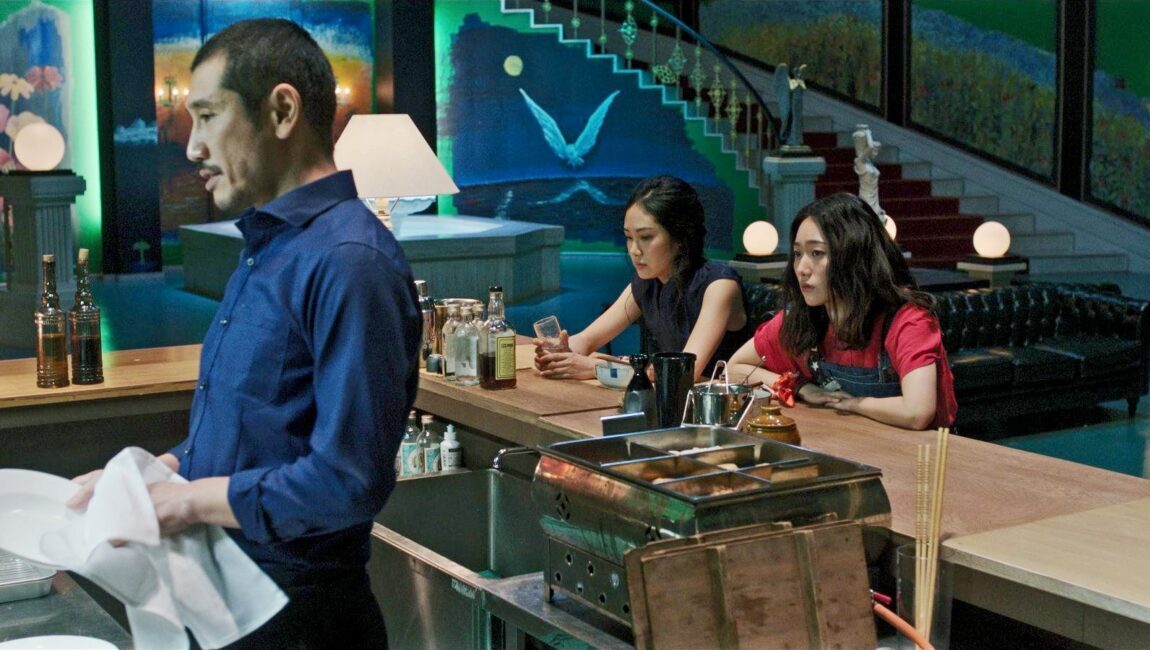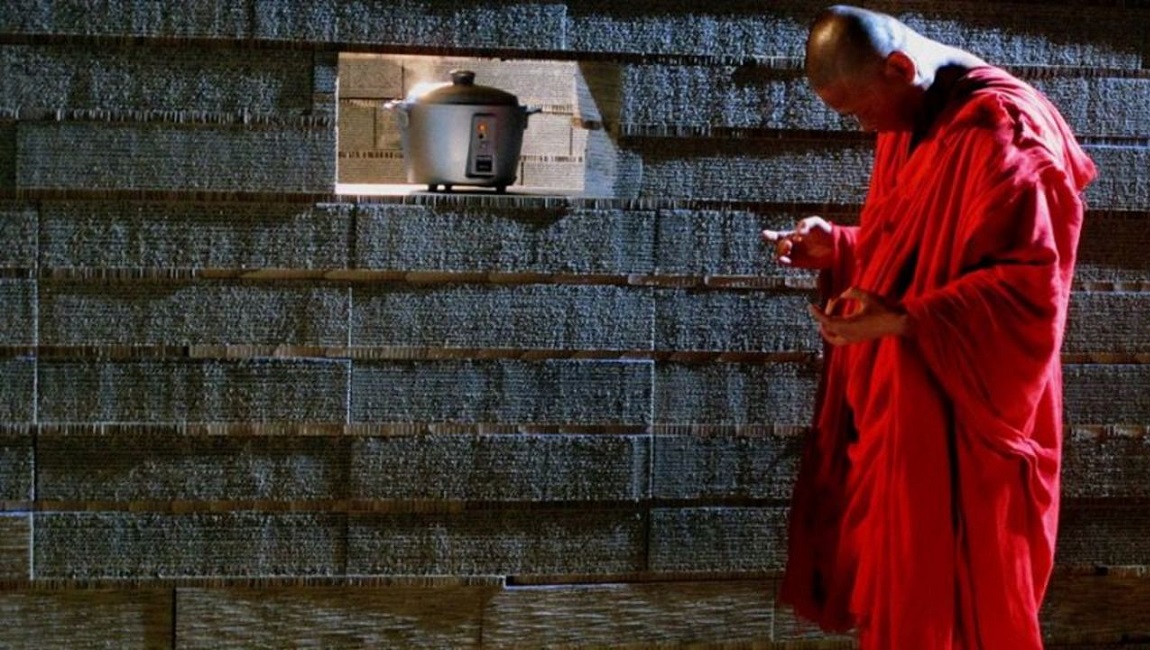Carolina Markowicz’s debut feature-length film Charcoal posits a simple moral quandary — would you put an infirm elderly person out of their misery for the right price? Irene (Maeve Jinkings) spends her days tending to her invalid father Firmino (Benedito Alves), as well as her layabout husband Jairo (Romulo Braga) and young son Jean (Jean Almeida da Costa). The family’s charcoal factory has seen better days, and money is hard to come by (Irene barely makes ends meet by cooking for friends and neighbors). She’s at her wit’s end when a new nurse named Juracy (Aline Marta) unexpectedly stops by to check on Firmino’s oxygen tank. Casually explaining that she has replaced Firmino’s old caretaker, Juracy bombards Irene with a no-holds-barred assessment of Firmino’s condition — he will never get any better, and will be in more and more discomfort as time goes on. She then presents a modest proposal — dispose of Firmino, a mercy killing of sorts, and in his stead host an Argentinian drug lord who has faked his own death and needs a place to hide out. Irene is taken aback by the woman’s idea, but she also doesn’t say no. After a halfhearted chat with the local priest, in which Irene hopes to preemptively absolve herself of any lingering guilt, she wheels Firmino over to the factory and dumps him into a furnace. Shortly thereafter, Don Miguel (César Bordón) is delivered to their doorstep. This all transpires in a few minutes of screen time; Markowicz doesn’t drag out this ethical dilemma, as she’s more interested in the aftermath of the family’s decision. This is ultimately a story of utilitarian, practical need versus the hard reality of an uncaring universe where only the strong survive.
Don Miquel is immediately unhappy with his lodgings; a man of means, it is inconceivable to him to live amidst such poverty. Miguel and Jairo constantly butt heads, two desperate men still impotently trying to prove some masculine dominance over even these most inconsequential of surroundings. And young Jean seems entirely too fascinated by their guest, this symbol of a new kind of life beyond the confines of the simple village Jean knows all too well. The film progresses along these lines, as Miguel settles into his new surroundings while his presence gradually alters his host family, his influence snaking through each family member in unexpected ways. Jairo uses the family’s windfall of ill-gotten gains to buy an expensive gift for his lover, while Jean impresses the neighborhood kids with sodas and candy from the local confectionery. Even the stoic Irene succumbs to an impulse purchase, procuring herself an expensive bottle of perfume that she squirrels away like a talisman, an object representing some sort of upper-class fantasy. While Markowicz plays things fairly straight, there’s some gallows humor here, for sure; Irene has to keep nosy neighbors Luciana (Camila Mardila) and her husband Sergio (Pedro Wagner) away from their secret, while maintaining the ruse that Firmino is still alive and bedridden inside their house. It’s very much a Coen Brothers plot, and there are a couple of nerve-jangling sequences that ramp up enough tension to reasonably call Charcoal a genre film. An unexpected visit from Luciana to pick up a catering order becomes a prolonged sequence of who-knows-what, with Luciana politely but insistently asking to see Firmino to pay her regards. Another running gag finds Don Miguel constantly sneaking away to do drugs, an addiction that will complicate matters as the story goes on.
But for all this dark playfulness, Markowicz’s talent lies in grounding this story in the everyday, quotidian reality of this family. Her keen attention to lived-in details and naturalistic performances suggest an affinity for the neo-realists and especially Marco Bellochio. Jinkings is a remarkable actress, smart and calculating but also harried, so tired of living hand-to-mouth that even this deal with the devil seems reasonable. She carries the film, her maternal and survival instincts driving her to increasingly desperate measures. Charcoal culminates in a second act of murder, which isn’t presented as a moral choice so much as a necessity. Markowicz suggests a perpetual cycle of dog-eat-dog violence that thankfully never tilts into full-blown parable. In fact, there’s not even an inkling of religious allegory here — the Church proves a useless appendage — but instead a cold, unblinking look at what normal people will do to make their way in this world.
Published as part of TIFF 2022 — Dispatch 3.







